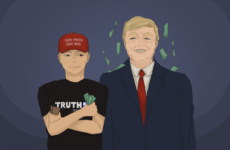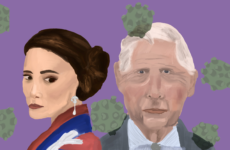As we prepare to enter into a new year of the Covid-19 pandemic, what seems like never-ending economic turmoil trails right behind us. Over the past two years, Turkey has been swept by a devastating currency crisis, which has surged inflation to its highest rates in almost two decades. As President Recep Tayyip Erdogan struggles to manage Turkey’s deteriorating economy, the political tactics and authoritarian proclivity that have worked for him in the past seem like they won’t be much help this time.
The blame for the intensity of the crisis undoubtedly falls on Erdogan, whose economic policy ushered the country into financial ruin over the tenure of his ruling Justice and Development Party (AKP). The ramifications of the pandemic forced a reckoning on the government’s inability to navigate the delicate economy. Erdogan’s insistence on cutting interest rates stems from his unorthodox view that higher rates cause inflation, a belief that contradicts the suggestions of many seasoned economists.
Unfortunately, Turkey’s current economic state has not backed up Erdogan’s theory. The aggressive easing cycle accompanied by rampant inflation has significantly eroded the lira’s — Turkey’s national currency — purchasing power. The devalued lira has made everyday goods like food, fuel, and transportation even more expensive, forcing people to spend a larger share of their earnings on necessities. However, even as inflation reaches historical highs, losing 44% of its value against the U.S. dollar in 2021, Erdogan insists that the “problem” of inflation is only temporary and that the country’s economic foundations are sound, especially compared to other countries experiencing similar crises around the world. “It is clear that there is a bulge in inflation, as in the exchange rate, that does not match the realities of our country and economy,” Erdogan told members of the AKP.
Since that statement[ck], emergency measures taken by Erdogan and his new finance minister, loyalist Nureddin Nebati, have helped the lira recover some of its value. However, these initiatives haven’t helped counteract the increase of fresh scrutiny of the president’s years-long centralization of authority. Commenting on this accumulation of power, Hakan Kara, a former chief economist at Turkey’s Central Bank and a professor at Ankara Bilkent University, explained to The Washington Post that “the people appointed to top positions were selected from a very small pool,” raising concerns of political pressure being inflicted on independent institutions, such as the Central Bank, that are ordered to “follow instructions from the government very closely.”
This pattern of political pressure has intensified over the past decade as many bank policymakers, government ministers, and independent experts are dismissed for opposing Erdogan’s economic policy of interest-rate cuts. As healthy checks and balances on Erdogan’s growing power gradually disappear, it has become increasingly clear that the fate of the country lies in his hands.
Meanwhile, Turkish citizens have united through their experiences of hardship, and criticism of Erdogan’s government has become increasingly bold despite their consistent efforts to suppress distress and opposition. Viral videos of long lines for subsidized bread or vegetable sellers dividing heads of cabbage into affordable chunks revealed the plight of Turkey’s trembling economy.
“I just sold a quarter of a cabbage to a customer. Half of a half. And if there are still people saying that the economy is good then they should open their eyes and look around,” the seller said in one of the video that went viral.
In a recent poll released by Metropoll in December, about 75% of respondents said their trust in the Turkish government’s economic policies had reduced since last year. This has raised the confidence of opposition parties who await the election of 2023 to possibly create a victory out of the lagging voter support for the Justice and Development Party.
“We are face-to-face with a ruling government that is nearing the end of its life. They are making mistake after mistake,” said Istanbul mayor and member of the Republican People’s Party (CHP) Ekrem Imamoglu in an interview with The Washington Post.
However, an electoral victory as such won’t be easy, especially following the eighth year of Erdogan’s presidency who has undeniably garnered a fiercely loyal base of conservative Muslims and other supporters. Though clearly, Erdogan’s inability to fend off the deteriorating value of the lira has cost him a significant loss of confidence. If his economic policies drive the recession into 2023, Erdogan’s rule might actually see its end.




